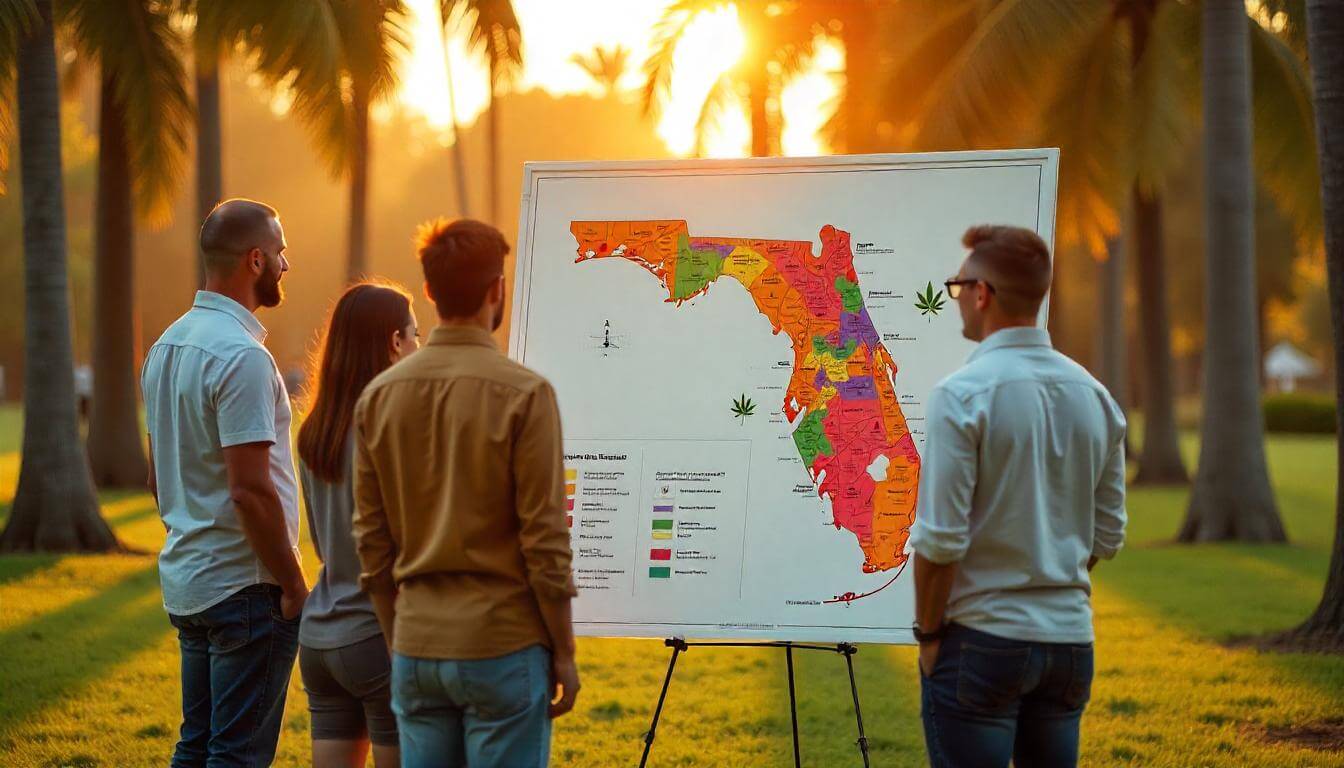Efforts to legalize recreational cannabis in Florida have faced many obstacles. The recent defeat of Amendment 3 shows just how complex this issue remains. This article looks at the main factors at play—including political opposition, public opinion, and the strategies advocates are now considering.
What Happened with Amendment 3?
Amendment 3 was a proposal to make recreational cannabis legal for adults in Florida. It needed 60% of the vote to pass but fell short, despite strong support. The campaign group behind it, Smart & Safe Florida, expressed disappointment but emphasized that they’re not giving up. They’re open to working with lawmakers to pursue cannabis reform, focusing on issues like decriminalization, public safety, child protection, and allowing home cultivation.
Political Opposition to Legalization
Governor Ron DeSantis was a prominent opponent of Amendment 3. He argued that legalizing recreational cannabis would harm Floridians’ quality of life, raising concerns about public nuisance and other social impacts. Dr. Jessica Spencer, who led the “Vote No on 3” campaign, praised the Governor and First Lady for standing firm against the amendment, even though pro-cannabis groups heavily funded the “Yes” campaign.
Public Opinion and Policy Challenges
The vote on Amendment 3 showed that Floridians are still divided on cannabis legalization. While a significant number supported the amendment, the required supermajority wasn’t reached, indicating some lingering public concerns. Advocates say educating the public is essential to clear up misconceptions and build broader support for future legalization efforts. They’re also focusing on promoting safe consumption and strong regulation in any future proposals.
The Role of Local Governments
Local governments significantly impact cannabis policy in Florida. Counties with more progressive attitudes could set an example, while more conservative areas may resist change, creating inconsistency across the state. For statewide legalization to succeed, advocates need to work toward a unified approach that accounts for these regional differences.
Moving Forward: New Strategies for Legalization
Advocates for recreational cannabis are shifting tactics. They’re focusing on collaboration and using evidence-based arguments to sway skeptical lawmakers and voters. Advocacy groups are also emphasizing the economic and medical benefits of a regulated cannabis market. By directly engaging with opponents and addressing their concerns, advocates hope to ease resistance and build broader support.
Lessons from Other States
States like Colorado and California, which have already legalized recreational cannabis, offer useful insights for Florida. These states show that strong infrastructure—covering licensing, taxation, public safety, and health standards—makes legalization smoother and more acceptable to the public. Florida’s advocates are looking at these examples to refine their approach.
Keeping the Public Engaged
Advocates stress the importance of keeping Floridians involved in the process. They encourage citizens to stay informed, participate in local discussions, and engage with policy debates. Civic involvement strengthens the movement and helps create a fair legal landscape that reflects the diverse needs of Floridians.
Advocacy Groups Leading the Charge
Cannabis advocacy organizations are tirelessly pushing for reform. They’re using media, community outreach, and direct lobbying to influence policymakers. These groups also fight misinformation by sharing accurate, research-backed information. Their grassroots efforts aim to build widespread support, bringing the goal of legalized recreational cannabis in Florida closer to reality.





